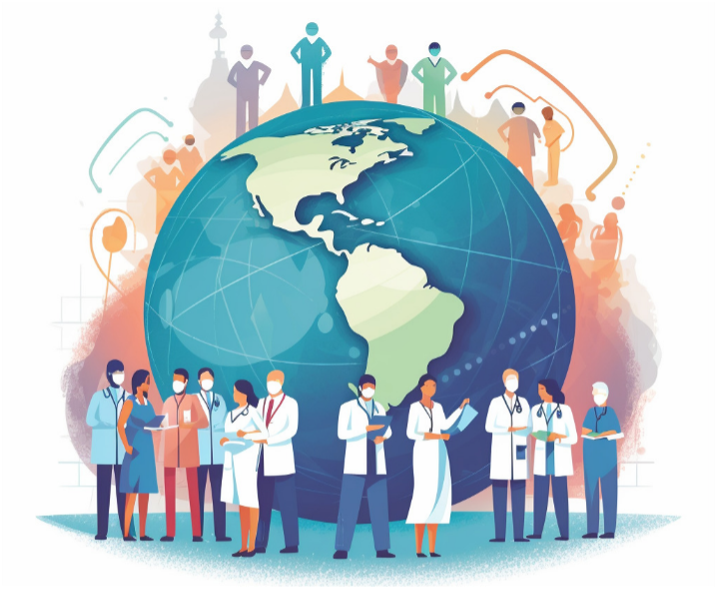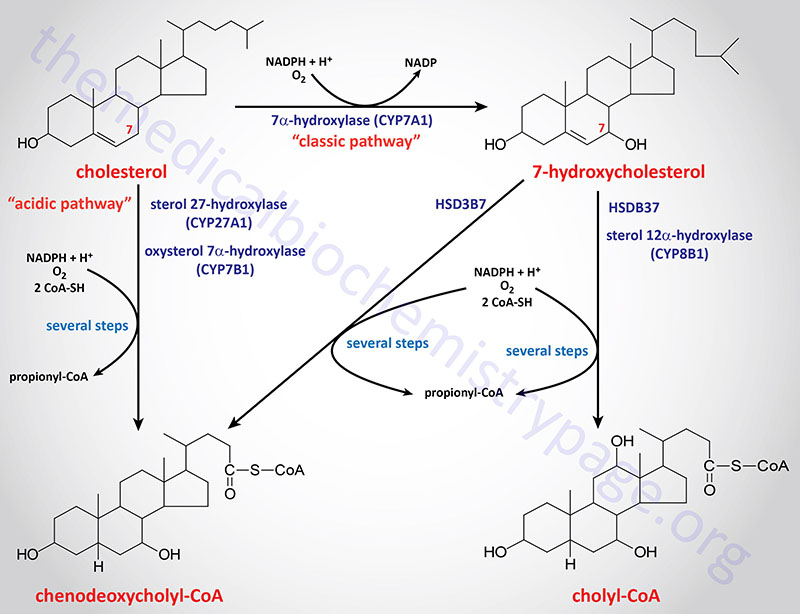In today’s interconnected world, global health stands as a critical concern influencing the well-being of populations across nations. Recognizing the pivotal role played by organizations like USAID, Atul Gawande emphasizes the urgent need for global health leadership to rebuild the healthcare infrastructure that has been severely compromised. As the former head of USAID’s Bureau for Global Health, Gawande witnessed firsthand the profound impacts of health service reductions, particularly in combating diseases such as HIV, tuberculosis, and malaria. The devastation caused by diminished public health initiatives underlines the necessity for renewed commitment to global health efforts. With concerted action, there is hope to preserve and advance health outcomes worldwide, ensuring a healthier future for everyone.
The concept of global health encompasses the strategies and actions taken to improve health on an international scale, bridging gaps among different countries and cultures. This field addresses widespread health concerns, focusing on preventive measures and the equitable distribution of medical resources. Strong public health leadership is essential for fostering collaboration among nations and healthcare entities to tackle pressing health challenges collectively. Furthermore, robust health infrastructure is crucial, enabling swift responses to outbreaks and ensuring effective healthcare delivery. Ultimately, global health is not just about addressing current issues, but also about fostering resilience for future generations.
The Impact of USAID Dismantling on Global Health
Atul Gawande highlighted the significant repercussions stemming from the dismantling of the U.S. Agency for International Development (USAID). With the organization slashing its staff and cutting back on crucial health programs, millions of vulnerable populations worldwide have suffered as a direct result. Gawande’s insights emphasize that while the restoration of USAID to its previous stature seems unlikely, there remains an imperative to champion the global health initiatives that are still salvageable. The abrupt loss of funding for innovative public health programs has jeopardized gains achieved over decades, reflecting a critical gap in global health leadership.
The absence of a robust USAID has adversely affected health infrastructure not only in the U.S. but also in many countries that rely on American support for their public health systems. This trend poses serious challenges to global health standards, undermining programs that have successfully decreased maternal and child mortality rates and improved responses to infectious disease outbreaks. Without the vital partnership and funding that USAID provided, the path towards recovery and resilience in these health domains has grown increasingly uncertain.
The Importance of Science and Medicine Commitment
In his address, Atul Gawande passionately encouraged students and faculty to remain steadfast in their commitment to science and medicine, even amid institutional setbacks. He stressed that the current landscape of health infrastructure and funding may appear bleak, but it is crucial for upcoming generations to uphold the values of scientific inquiry and healthcare leadership. Their engagement and enthusiasm can spur innovation and adaptive strategies that respond to the global health challenges that arise in unpredictable times.
Gawande’s call to action resonates with the need for emerging leaders in health to navigate the complex intersections of public health policy, scientific research, and medical practice. The recent setbacks within the U.S. health infrastructure showcase that knowledge and expertise remain critical for countering potential health crises. Students pursuing careers in health must recognize the pivotal role they play in contributing to the resilience of global health systems and the enhancement of health initiatives worldwide.
Understanding the importance of global health leadership is essential for students of medicine and public health. Gawande’s insight serves as a reminder that there is a demand for future leaders who can navigate through adversity and contribute to innovative solutions in healthcare. As they progress in their careers, they will be tasked with the responsibility of safeguarding and advancing health systems that are currently under threat, thus shaping a healthier future for generations to come.
Future of Global Health Initiatives
Despite the challenges laid bare by the dismantling of USAID, Atul Gawande expressed a hopeful outlook regarding the future of global health initiatives. He recognized that while the U.S. might momentarily retreat from its leadership role, emerging nations and local leaders within the U.S. could fill the void. There is a growing recognition that various stakeholders, including NGOs, private organizations, and local governments, can drive forward essential health initiatives regardless of the geopolitical landscape.
The continued advancement of global health will likely depend on collaborative efforts and innovative approaches to health funding and program execution. Ensuring access to treatments and vaccinations during a health crisis exemplifies a foundation upon which future interventions can be built. Health investments need to adapt to this evolving environment to ensure that essential services are not only maintained but expanded to reach those in need, thereby reinforcing global health leadership.
Revitalizing Health Infrastructure
Atul Gawande’s experience illustrates the critical need for revitalizing health infrastructure to effectively respond to present and future public health challenges. The deep cuts to USAID operations directly correlate to weakening the frameworks that provide support for various global health initiatives. Addressing such gaps requires a strategic focus on rebuilding these infrastructures to ensure resilience and responsiveness to health emergencies, enabling communities to better cope with crises like pandemics and endemic diseases.
Investment in health infrastructure is fundamental to bolstering both local and international capacity to manage disease outbreaks and improve overall health outcomes. Gawande’s work with USAID showcased how a modest budget could yield significant returns in terms of disease surveillance and emergency response. This model serves as a roadmap for future investments — emphasizing the potential benefits of re-establishing comprehensive health strategies, aligning national interests with global health imperatives.
The Role of Technical Assistance in Health Solutions
Gawande articulated the importance of technical assistance as a crucial element of effective health interventions. He illustrated how health programs successfully transition from adequate to exceptional performance hinges not only on innovative solutions but also on the sustained support and guidance that ensures implementation and follow-through. The transition from 60% to 90% vaccination rates, for instance, demonstrates that providing technical knowledge and resources can significantly amplify outcomes.
In a rapidly changing global health environment, fostering partnerships between countries to share best practices and technical expertise becomes vital. Gawande’s advocacy for sustained support resonates with the notion that technical assistance is not merely supplemental; it is foundational to enhance the efficacy of health interventions and ensure that populations can access lifesaving treatments. As public health continues to evolve, building a robust framework of technical support will be paramount in achieving health equity and improving overall global health.
Encouraging Future Leaders in Public Health
Atul Gawande’s message underscores the vital need for nurturing future leaders in public health. He emphasized the role of students and young professionals as foundational pillars of the healthcare system, responsible for emerging health policies and practices. By encouraging a proactive approach to their education and involvement in health initiatives, Gawande advocates for a generation that is prepared to tackle the challenges ahead and innovate new solutions that promote community health.
Fostering leadership skills among students in health-related fields not only empowers these individuals but also enriches the public health landscape. With the requisite knowledge and skills, future public health leaders will be equipped to respond adeptly to health crises and advocate for sustainable practices within their communities. It is through dedicated education and mentorship that the next generation can rise as capable advocates for transformative change in global health.
Navigating Federal Health Funding Challenges
Recent challenges to federal health funding have emerged as a focal point in Atul Gawande’s reflections on the state of public health in the U.S. Current actions to freeze funding for critical health programs impact numerous initiatives, including those supported by USAID and the National Institutes of Health. The repercussions are severely felt across research infrastructures, potentially endangering scientific advancement and health outcomes for populations dependent on federal health support.
Understanding and addressing the intricacies of health funding is essential for sustaining public health initiatives. As Gawande pointed out, maintaining federal investments is crucial for realizing the full potential of innovative health solutions and effective delivery mechanisms in healthcare systems. By advocating for the rescue of crucial funding streams, allies in the health community can work collectively to reinforce public health systems that have faced vulnerabilities in recent times.
The Interconnection of Global Health and Local Initiatives
Atul Gawande’s insights reveal the interdependence between global health strategies and local health initiatives. While international efforts are indispensable in responding to pandemics and health crises, local implementation is vital for the success of these initiatives. Gawande articulately demonstrates how local health systems, when nurtured and supported, can enhance response times and improve health outcomes, illustrating that global health cannot overshadow local realities.
This interconnectedness urges policymakers and health administrators to foster a dialogue between local and global stakeholders. Ensuring that local leaders have the authority and resources to adapt global health strategies to specific community needs will create a more resilient healthcare environment. Gawande’s emphasis on this synergy embodies a successful framework for addressing both immediate health challenges and long-term global health objectives.
The Future of Leadership in Global Health
The future of global health leadership remains a pressing concern as highlighted by Atul Gawande. He voiced uncertainty about the immediate role the U.S. would take in leading global health initiatives following significant organizational changes at USAID. This uncertainty calls for a renewed dedication to fostering new leaders within the public health sphere who can champion comprehensive health initiatives and advocate for necessary funding.
In the landscape of global health, emerging leaders must embrace the challenges that come with evolving healthcare needs. Gawande’s perspective underscores that while the U.S. may experience temporary setbacks in its global health leadership, opportunities exist for new models of collaboration and governance. Empowering individuals to initiate change reflective of their communities will be pivotal in redefining what global health leadership looks like moving forward.
Frequently Asked Questions
What are the key challenges facing global health leadership today?
Global health leadership today faces significant challenges including staffing shortages, funding cuts, and the dismantling of health infrastructure, particularly within agencies like USAID. As noted by Atul Gawande, the recent reduction in programs at USAID has had devastating effects on public health initiatives worldwide. Strengthening global health leadership is essential for effective response to public health crises.
How has USAID impacted global health initiatives?
USAID has played a crucial role in global health initiatives by funding programs that reduce maternal mortality, improve disease surveillance, and enhance healthcare access in low-income countries. Gawande highlighted USAID’s ability to rapidly respond to health emergencies, cutting response times from weeks to days, thus showcasing its importance in the global health landscape.
What role does public health infrastructure play in global health?
Public health infrastructure is vital for sustainable global health outcomes. It includes resource allocation, disease monitoring systems, and training healthcare professionals. According to Gawande, the dismantling of USAID’s programs threatens the foundation of public health, which is critical for responding to health challenges effectively and maintaining progress in disease prevention and treatment.
What contributions have been made towards improving maternal health in global health?
In global health, significant strides have been made to improve maternal health outcomes, particularly through programs funded by USAID that target maternal and child health. Initiatives designed to prevent severe complications during childbirth have shown to add years to life expectancy for mothers and children, addressing a major component of global health challenges.
Why is the partnership between USAID and health agencies critical for global health?
The partnership between USAID and health agencies is critical for advancing global health goals, including disease prevention and health system strengthening. As Atul Gawande points out, these collaborations enhance the effectiveness of health programs, such as increasing vaccination rates and improving health service delivery, which are essential for tackling global health issues.
How can the U.S. restore its role as a leader in global health?
Restoring the U.S. leadership in global health requires reinstating effective funding, rebuilding partnerships, and committing to public health initiatives. Gawande emphasizes the need for a renewed focus on science and health infrastructure to overcome the setbacks caused by previous administration’s policies and to ensure America plays a pivotal role in the global health arena.
What is the significance of having skilled professionals in global health?
Skilled professionals are fundamental to advancing global health efforts. Their expertise is necessary for implementing programs, conducting research, and managing health crises. Gawande notes that the next generation of health professionals and researchers will be vital in addressing current and future global health challenges, ensuring that care is effective and reaches those in need.
What is the future outlook for global health according to Atul Gawande?
Atul Gawande remains cautiously optimistic about the future of global health. While he acknowledges the challenges posed by funding cuts and loss of infrastructure, he believes there is still an opportunity to effect positive change through dedicated efforts in scientific and medical communities. The ongoing need for global health expertise will ensure that this vital work continues.
| Key Points | Details |
|---|---|
| Dismantling of USAID | Significant cutbacks led to the loss of staff and over 85% of programs, impacting global health initiatives. |
| Impact on Global Health | The cuts caused widespread damage, jeopardizing health outcomes for millions across the world. |
| Ebola and Disease Surveillance | USAID enhanced disease tracking, reducing response times to outbreaks from over two weeks to less than two days. |
| Maternal and Child Health | Programs that reached 93 million women and children, contributing to a six-year increase in life expectancy. |
| Future of USAID | Despite challenges, Gawande emphasizes hope for restoring health and science programs. |
| Role of U.S. in Global Health | Uncertainty about the U.S. maintaining its leadership role in global health; other nations may take on more responsibility. |
Summary
Global health is at a critical juncture, marked by the staggering impacts of funding cuts to essential programs. Atul Gawande’s insights underscore the urgency of restoring vital agencies like USAID, which has historically played a pivotal role in improving health outcomes worldwide. The future reliance on emerging leaders from various countries highlights the ongoing need for global health expertise and collaboration in the face of significant challenges.



